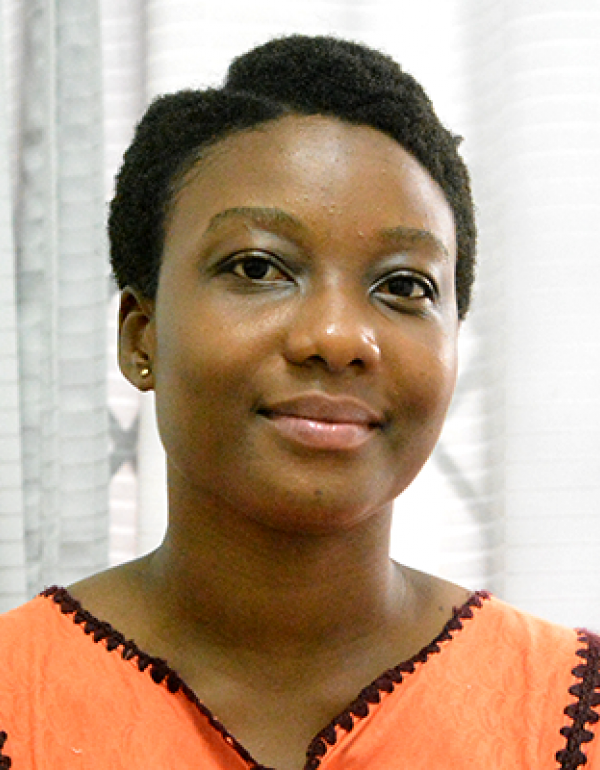In a bid to strengthen the Centre for Coastal Management (CCM) at the University of Cape Coast (UCC), the Vice-Chancellor has recently appointed six Research Fellows to the Centre at UCC. New Research Fellow Ivy Gyimah is a graduate of the MAMA program (2018). For her Master’s thesis she wrote on solid waste management at the household level in a section of Elmina. Her approach – mass balance measurements by household – is particularly valuable for understanding policy alternatives for government management and recycling of waste materials.
Ivy’s research continues to focus on waste management, environmental behaviour, policy, health, management and natural resource management. To properly manage a coast and empower coastal communities to be resilient in times of resource abundance and scarcity, environmental and natural resource management are key. Research in these areas helps in discovering solutions that will ensure sustainable use of coastal and ocean resources. Managing resources is deficient without an understanding of human behaviour, the main factor underpinning resource use. Proper waste management is equally essential in achieving sustainable resource use and in improving ecological health. Through CCM’s institutional and industrial collaborations, Ivy plans to work assiduously with my colleagues to realize the aims and goals of the Centre.
Since its establishment, the CCM has operated on a lean staff with maximum support from the Department of Fisheries and Aquatic Sciences (DFAS) within the University. These newly appointed staff were formerly engaged on the Fisheries and Coastal Management Capacity Building Support Project which was implemented by the DFAS from 2015 to 2020 with funding from the United States Agency for International Development (USAID-Ghana). The Centre, which was operationalised under this same USAID-Ghana-funded project, is fast growing and positioning itself as a formidable establishment in coastal policy and research.
The Centre aspires to be a strategic leader in the transformation of coastal areas first in Ghana, then West Africa and then on a continental scale in the foreseeable future. This, the Director, Prof. Denis W. Aheto, believes is achievable by drawing on the available expertise both locally and internationally and talents of young motivated scientists as well as capacity building to meet the new challenges presented by our fast-changing coasts.
Hence, the Centre was selected to host the World Bank Africa Centre of Excellence in Coastal Resilience (ACECoR). The Director of the Centre has expressed profound gratitude to the Vice-Chancellor for granting the request for these appointments, which he described as the largest number of appointments to a single department for the first half of 2020, in the University.

